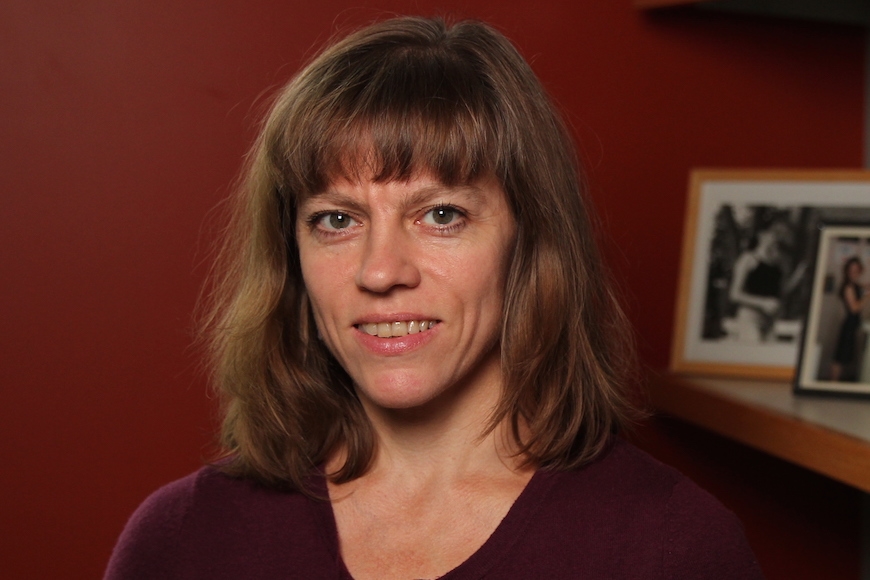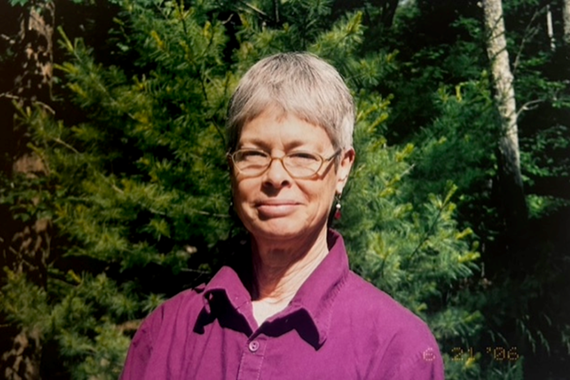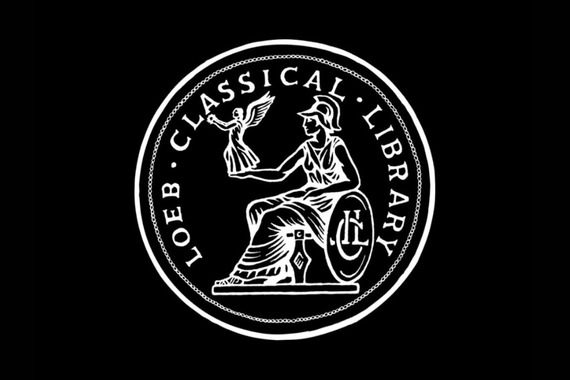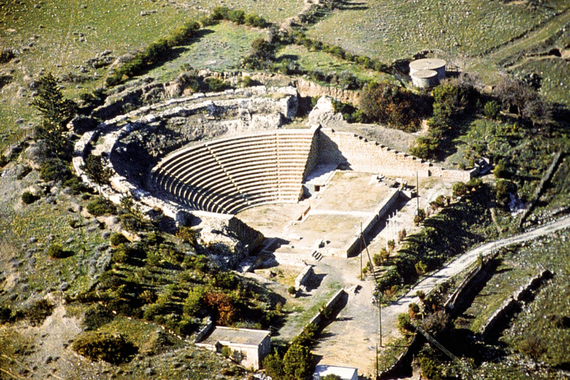Rethinking Modern Government: Lessons from the Ancient World
What can ancient societies tell us about our world today? More than we know.
“It's important to know what happened in the past,” says Associate Professor Eva von Dassow, who studies how ideas of freedom, rights, and governance took shape in the ancient Near East and how this knowledge can inform societies today. “We might be surprised to find that there is knowledge we'd like to recover.”
A Historical Approach to Texts
Von Dassow’s interest in the ancient Near East began with a love of ancient languages, such as Akkadian, Ugaritic, and Sumerian. “I was intrigued by the possibility of studying the most ancient languages that we know about from written records,” she explains. “I was trained initially as a philologist, and eventually, through a rather circuitous path, wound up discovering my interests as a historian,” she explains.
While in graduate school at NYU, von Dassow began a fellowship with the Metropolitan Museum of Art, where she studied the cuneiform tablet collection. She quickly discovered that philology alone was not sufficient for understanding the material, so she paid attention to how art historians, legal historians, and archaeologists approached it. Adopting a historical approach meant asking questions such as: Why did people write this? Why did they write it this way? Why did they keep it or not? And, what is the context that these records fit into? The experience inspired her to take a deeper look at the history behind ancient texts and how we understand them.
Between Democracy and Despotism
Von Dassow’s research examines the reality of ancient Near Eastern societies against the conventional paradigm that contrasts western liberty with oriental despotism, the idea of governments using absolute power. “Through my studies, it became ever more evident to me how deeply some version of that contrast is embedded in our field,” she explains, “but the evidence I was reading increasingly showed that it simply didn't apply to the ancient societies I studied.”
The paradigm “was constructed over the course of centuries and was solidified about 200 years ago,” von Dassow explains. “But since then, we've discovered thousands and thousands of cuneiform texts and we can learn a great deal more about the past. Our view of human history will be immeasurably more informed if we read them—and that reopens a lot of questions about the nature of governance.”
In order to better understand the history of governance, von Dassow looks at developments in how we understand democracy and think about government. “I became interested in tracing the vocabulary associated with freedom and rights so that I could better understand those elements of ancient political and social order,” she says. In order to do that, she realized that she also had to confront how and why that paradigm evolved. “And so, besides studying the ancient past, I also had to study the development of these ideas about the ancient past.”
Parallels in Politics
In 2008, at the same time von Dassow commenced her project on freedom and governance, she developed “a parallel practicum” to her research by becoming involved in University politics and activism on campus. “I found that I have a laboratory right here,” she says. She has since served in multiple positions in University government, including vice chair of the faculty senate, a role she held from 2013 to 2015, and is also the president of the Twin Cities chapter of the American Association of University Professors.
“We claim to prefer democracy as a form of government, but most of us don't participate. Real participatory governance takes courage and time,” she says. “If I want to know what the freedom of a citizen really is, I can do that by exercising that freedom. If I want to know about the nature of power and the nature of opposition, I can find out right here… It helps me understand the real dimensions of the things I study: liberty, governance, citizenship.”
Von Dassow was invited to participate in a research project called “Rethinking Oriental Despotism - Strategies of Governance and Modes of Participation in the Ancient Near East” at the Freie Universität in Berlin. While in Germany this upcoming year, she plans to continue working on her forthcoming book, which analyzes the intellectual history that resulted in the paradigm of western liberty versus oriental despotism. In addition, she hopes to further develop public discussion regarding the complexities of governance and democracy.
Solving the Puzzles
One of von Dassow’s favorite parts of her studies is making discoveries from fragmented texts. “Working out what the whole was based on these pieces that survive, that is a puzzle, it's like doing a jigsaw puzzle—except one that's not complete,” she says.
Additionally, she enjoys transferring that challenge to her students. “I enjoy seeing the lights go on when it is the student, not me, who makes the discovery, and that is yet another kind of joy.”
Von Dassow hopes that today’s students realize that past societies were different, rather than primitive. “We should not assume that we've transcended the past. We should not think that because now we have iPhones and things that we are more advanced; that would be a mistake.”
Who’s to say what we could learn from ancient societies? “There are ways of putting society together and running things can illuminate alternative possibilities for how we might construct our lives. We shouldn't assume that we already know what's best.”
This story was written by an undergraduate student in CLAgency. Meet the team.



